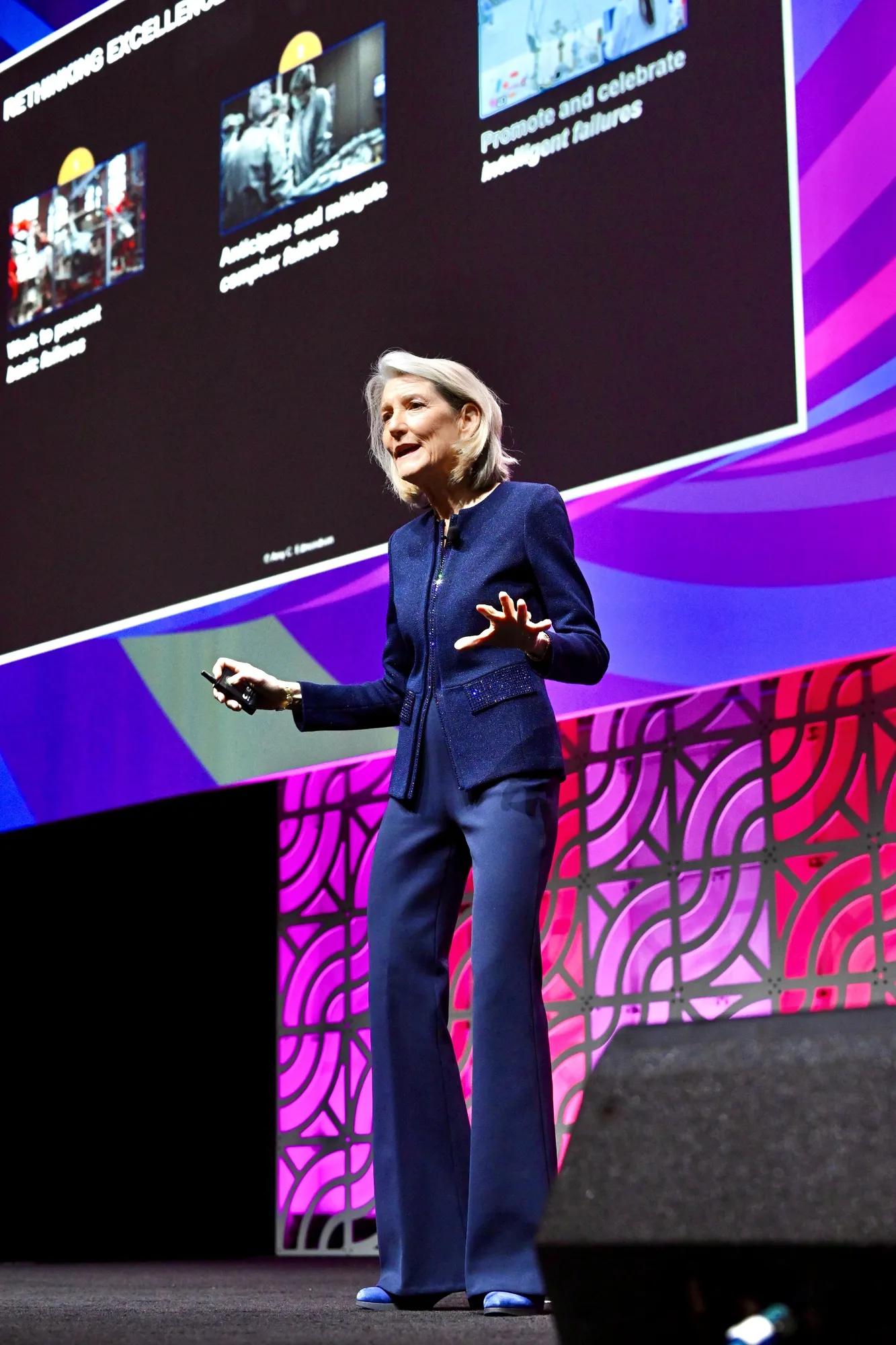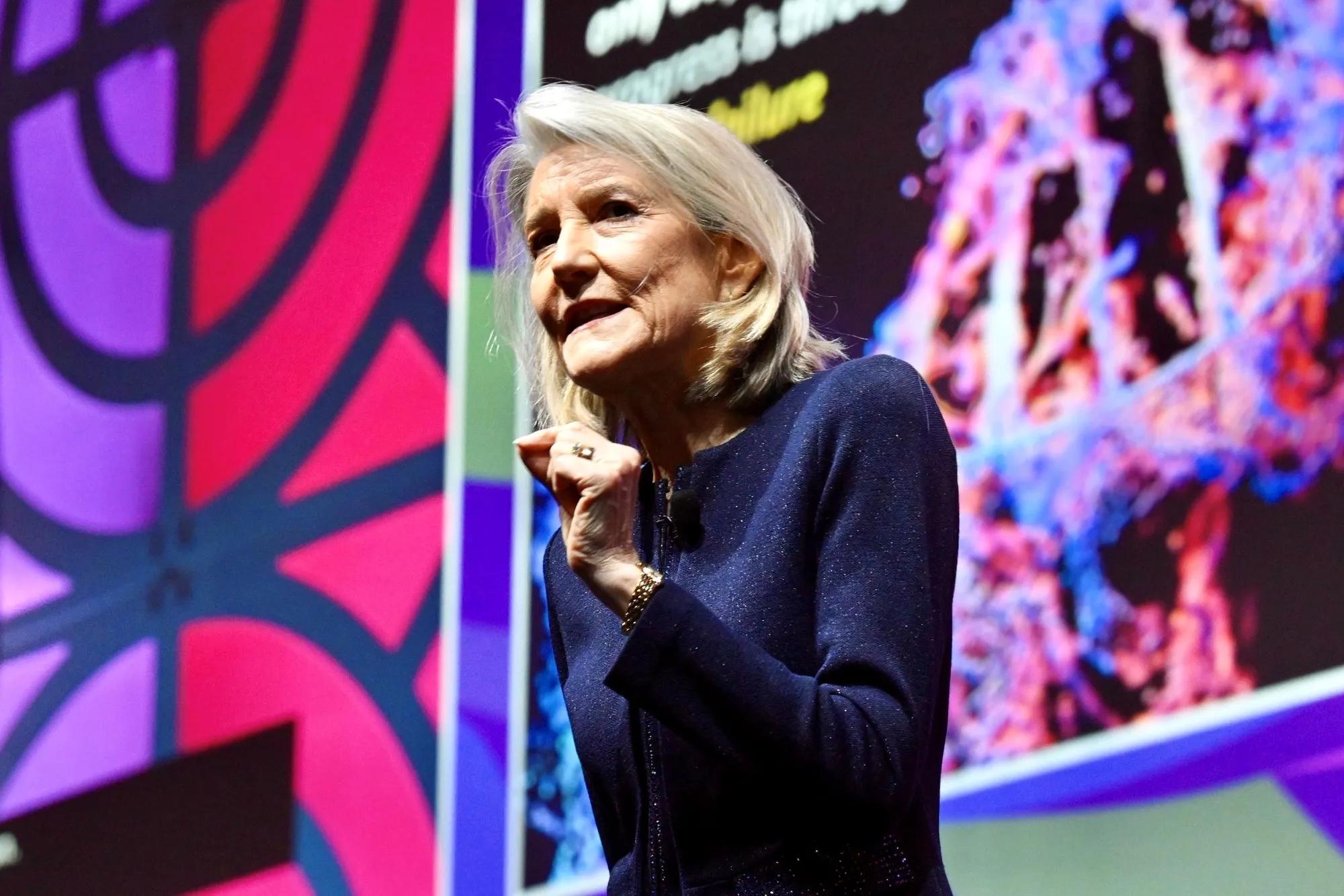ATD Blog
Think Like a Scientist
Amy Edmondson shares criteria for intelligent failure and a recipe for excellence in an uncertain world.
Wed May 21 2025

“With innovation comes failure,” explained Amy Edmondson, organizational behavior expert, author, and Harvard Business School Novartis professor, during the Association for Talent Development’s Tuesday keynote session at ATD25. Titled “Unlocking Growth Through Intelligent Failures: The Strategic Advantage of Embracing Fallibility,” Edmondson introduced her presentation by speaking about Jennifer Heemstra, a researcher and chemistry professor at Washington University in St. Louis, Missouri. Understanding that scientists have long been A-grade students with few academic failures, Heemstra tells the scientists with whom she works, “We’re going to fail all day,” a statement that detoxifies failure.
It’s unrealistic to think an organization is going to attain perfection. So, posed Edmondson, “how do we change our thinking” and reframe failure?

Types of failure
There are three types of failure, Edmondson continued: basic (which does not mean “small”); complex, which is similar to a perfect storm of many little components going wrong; and intelligent failure. Edmondson cautioned against using the words mistakes or errors and failure interchangeably. Errors occur in a known environment and deviate from an individual’s expectations, whereas failures occur in unfamiliar territory. That is why Edmondson uses the adage “trial and failure,” rather than “trial and error” to talk about intelligent failure.
In rethinking excellence, a company should work to prevent basic failures, anticipate and mitigate complex failures, and promote and celebrate intelligent failures.
“Made in unfamiliar territory” is the first of 4.5 criteria for intelligent failure. The others are: failures that occur in pursuit of a goal, those a person makes after doing their homework, and those no bigger than necessary. The one-half criteria is taking the time to learn from it.
Rethinking excellence
The work environment also has three types: consistent, where individuals know how to get results—think manufacturing with the routine of an assembly line; variable contexts, where a “mature knowledge about how you get the results you want and anything could happen” exists, such as in healthcare; and novel, environments where humans don’t yet know how to attain results, such as in a research lab. Context matters and, stated Edmondson, when moving from consistent to novel environments, uncertainty increases, as does failure.
It is in psychologically safe environments that employees are willing to experiment. Psychological safety, a term Edmondson coined in the 1990s, is not equal to being “nice,” nor is the concept about lowering one’s performance standards. When psychological safety and performance standards are high, it enables employees to get into the learning zone.
To increase the likelihood of teams building the capacity to enter that frame of mind, consider doing the following:
Set the stage. Do so by emphasizing a team’s compelling purpose and calling attention to the context. When stakes are high (financial, safety) in consistent environments, the time is ripe for mindful execution. In variable and novel environments, think about cautious and careful experimentation. In lower-stakes situations, consistent environments can move ahead with business as usual; variable environments can take a more casual approach, and novel environment employees can have fun experimenting.
Invite exploration. Think about what matters, give the issue careful thought, and make sure that team members have the time and opportunity to respond. Ask listening questions such as “What are we missing?” “Can you explain that further?” and “Who has a different perspective?”
Respond and reinforce. This step involves sharing lessons and rewarding employees for speaking up. An organization may even consider having failure parties, during which leaders acknowledge the team’s hard work; share lessons; and encourage timely closure, which saves an organization resources because employees then move on to the next project.

Recipe for excellence in an uncertain world
Edmondson recounted how one executive conveyed to her the thought that, in times of uncertainty, it’s more important than ever that all things go well. Edmondson, however, emphasized that smart failure is even more critical for organizations in uncertain times. She shared a recipe for attaining success:
Aim high
Team up
Fail well
Learn fast
Repeat
Tuesday’s keynote was sponsored by The Myers-Briggs Company.

